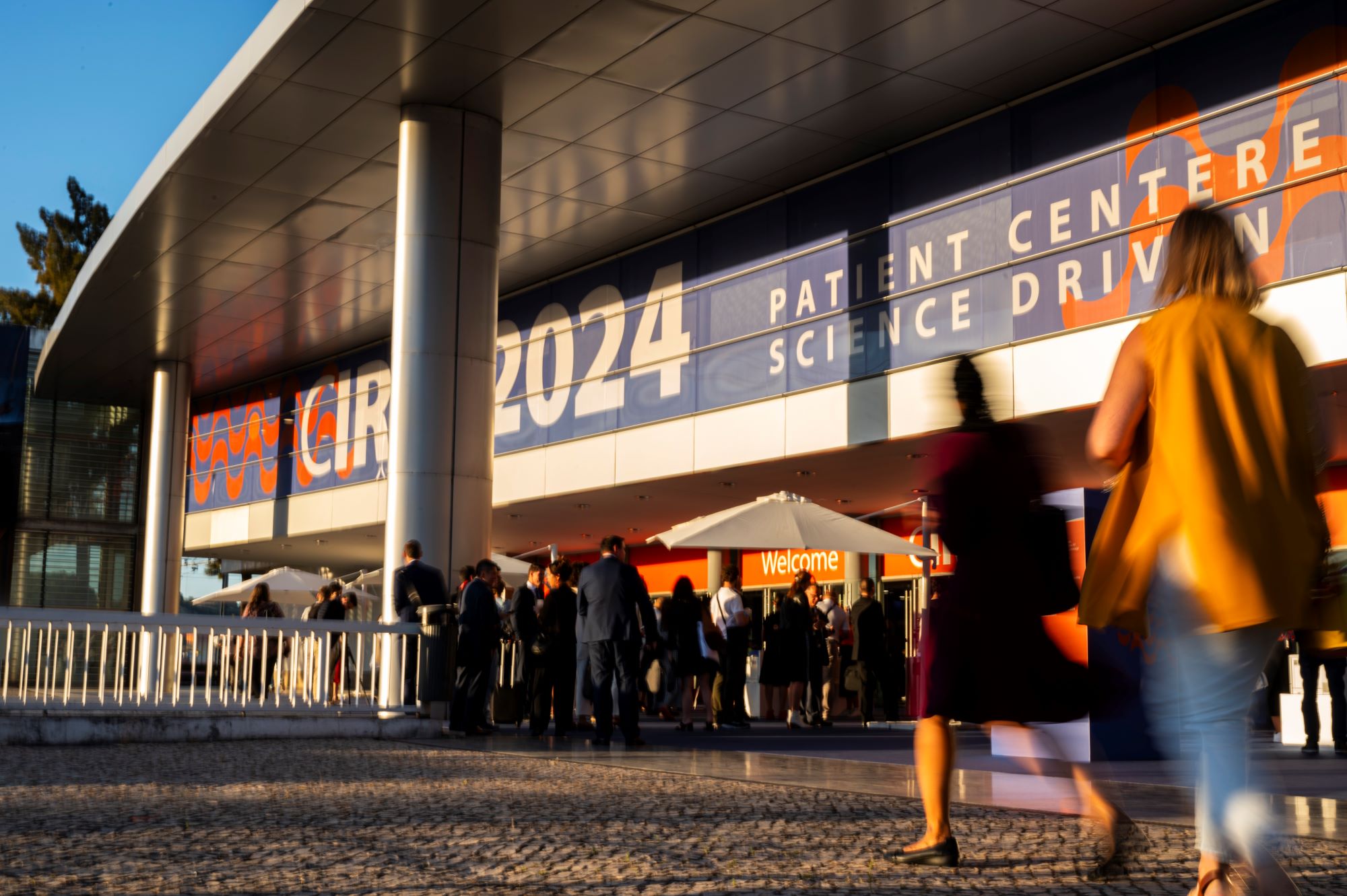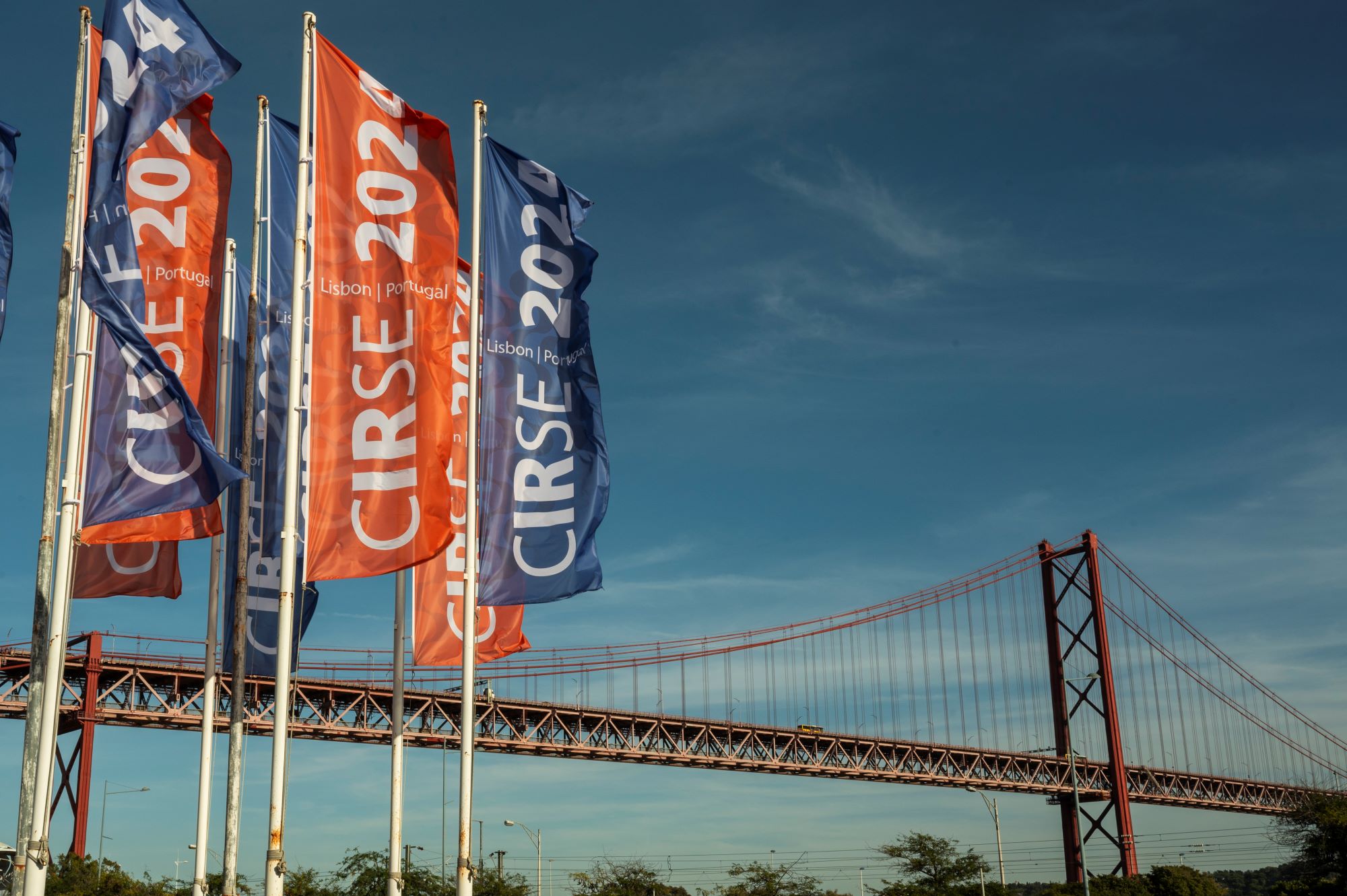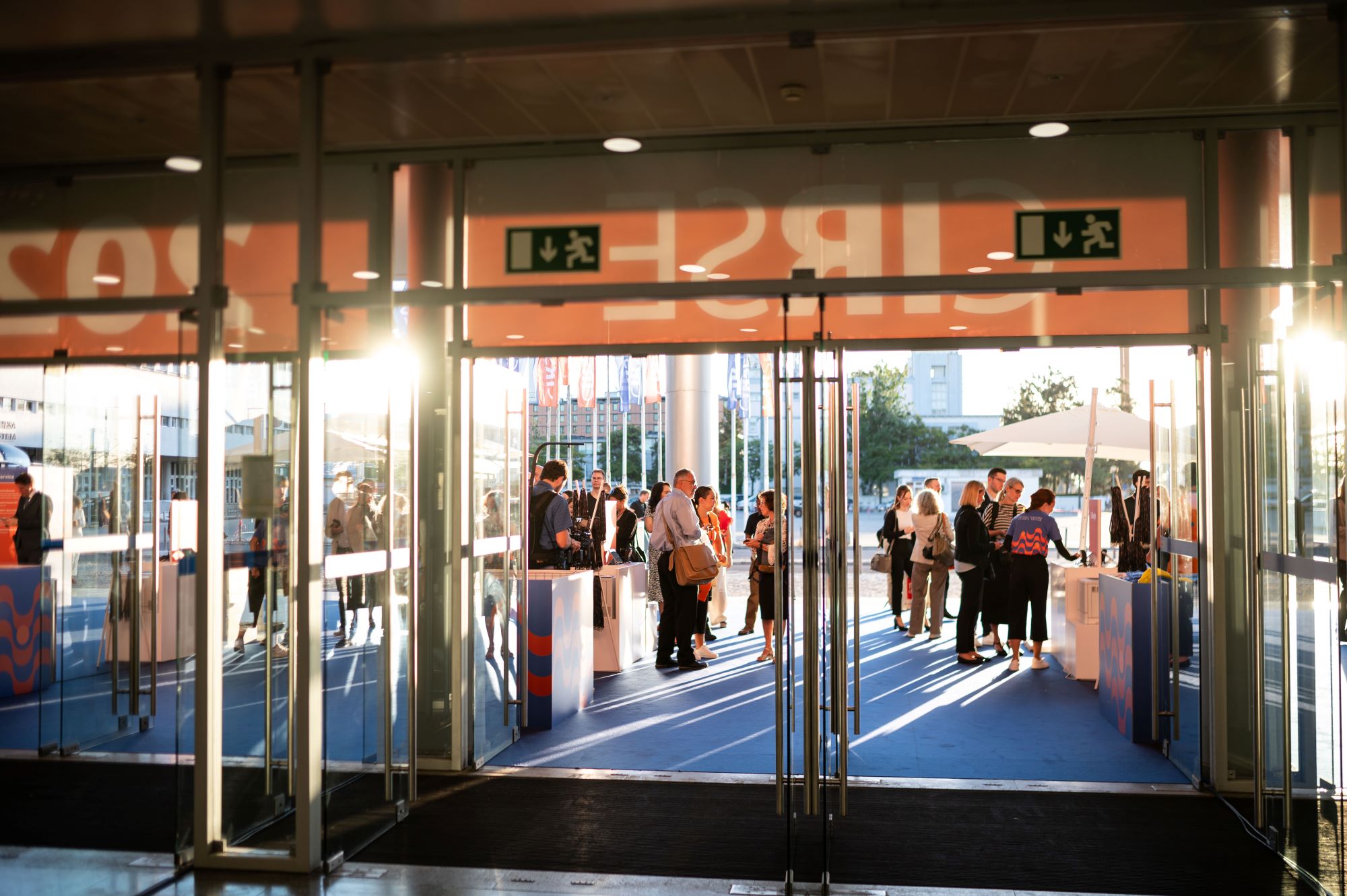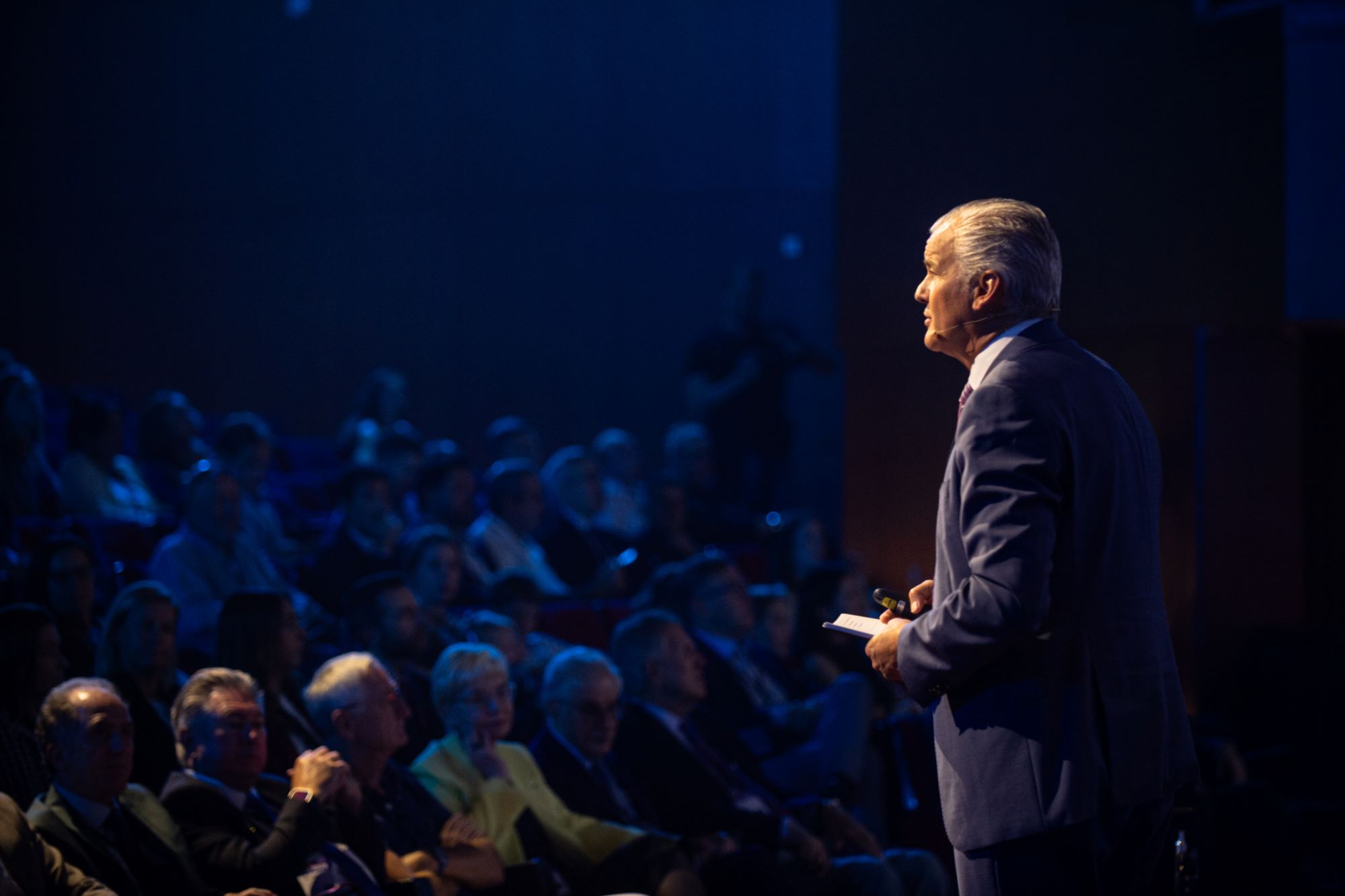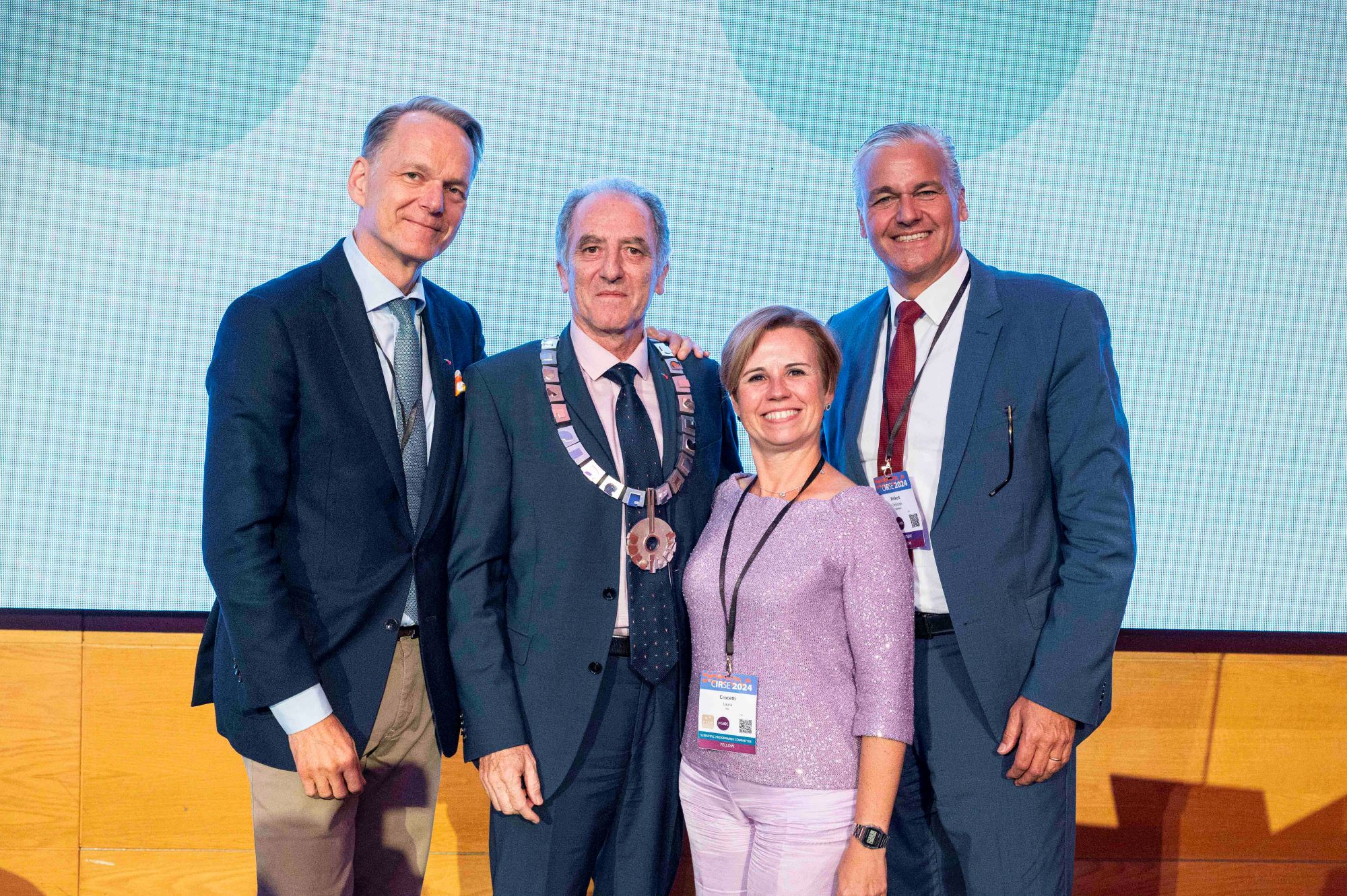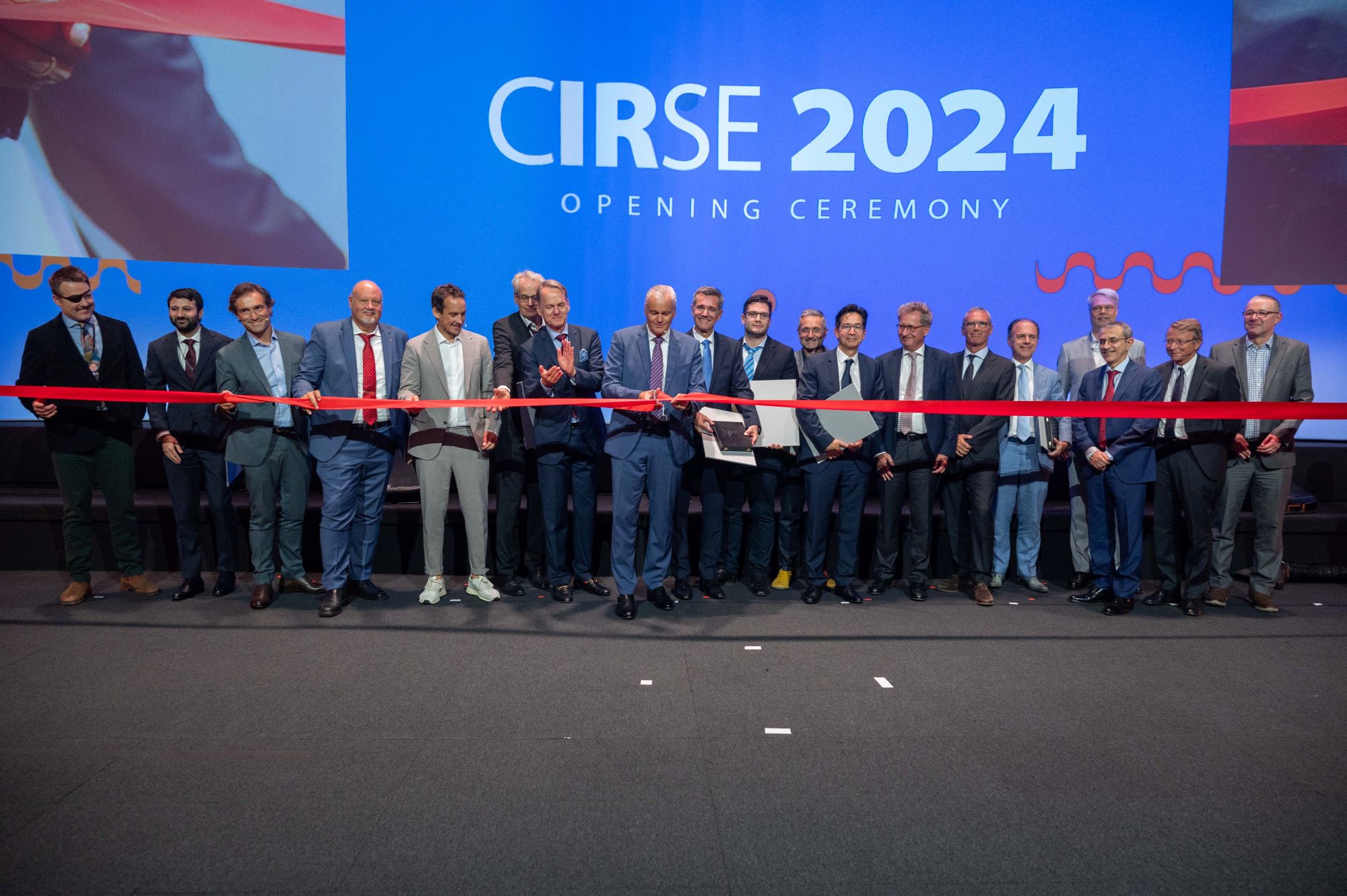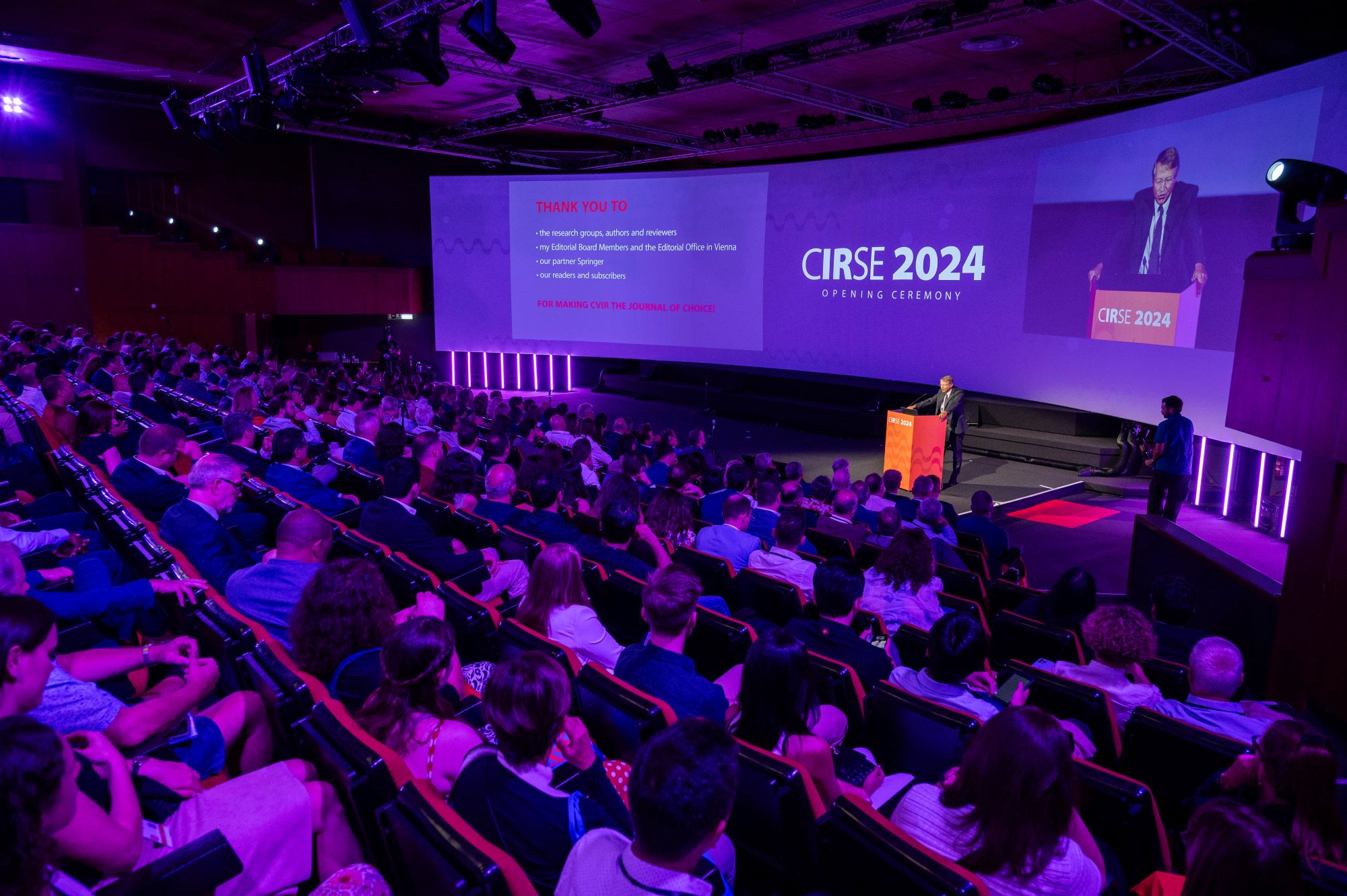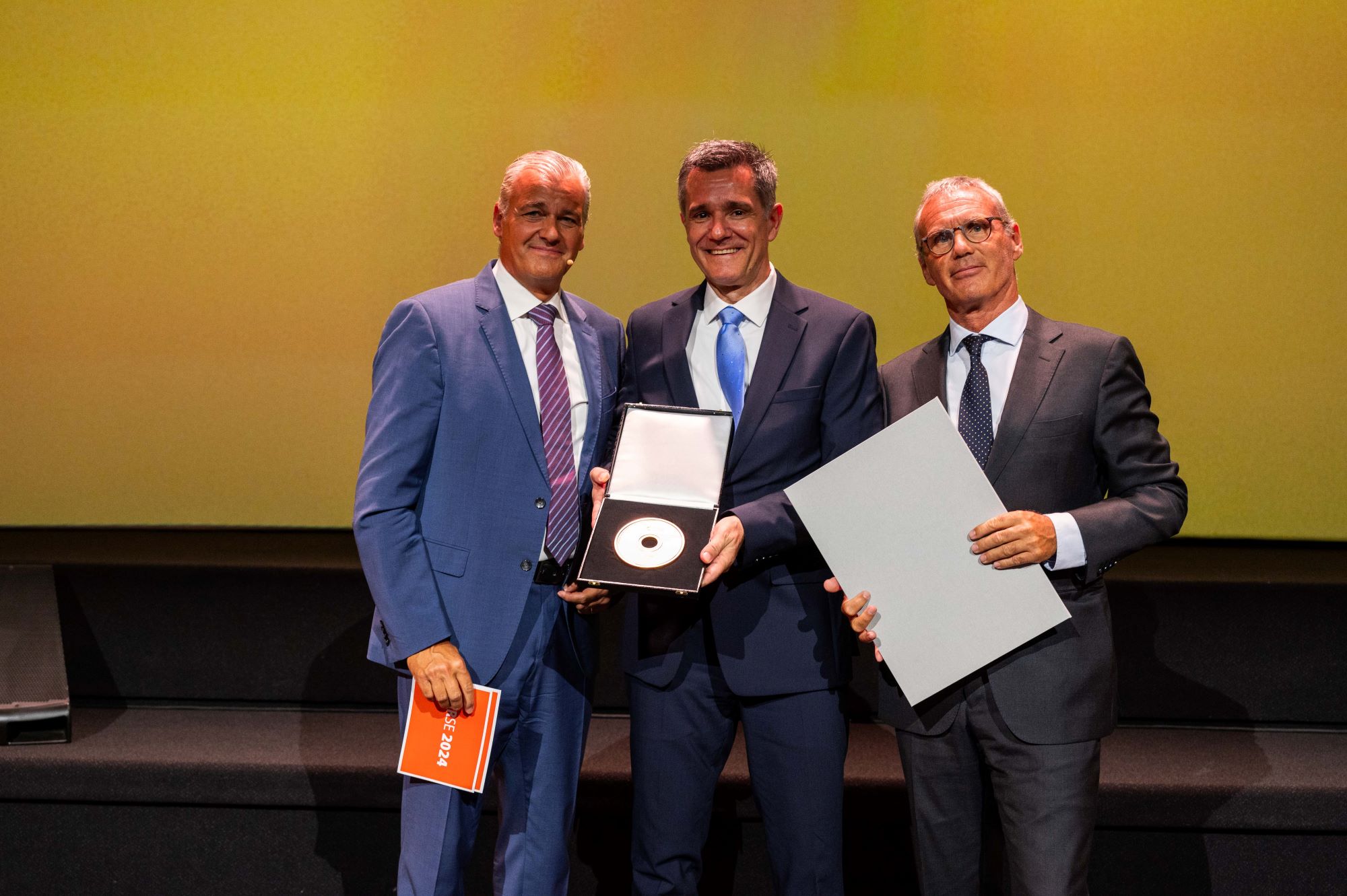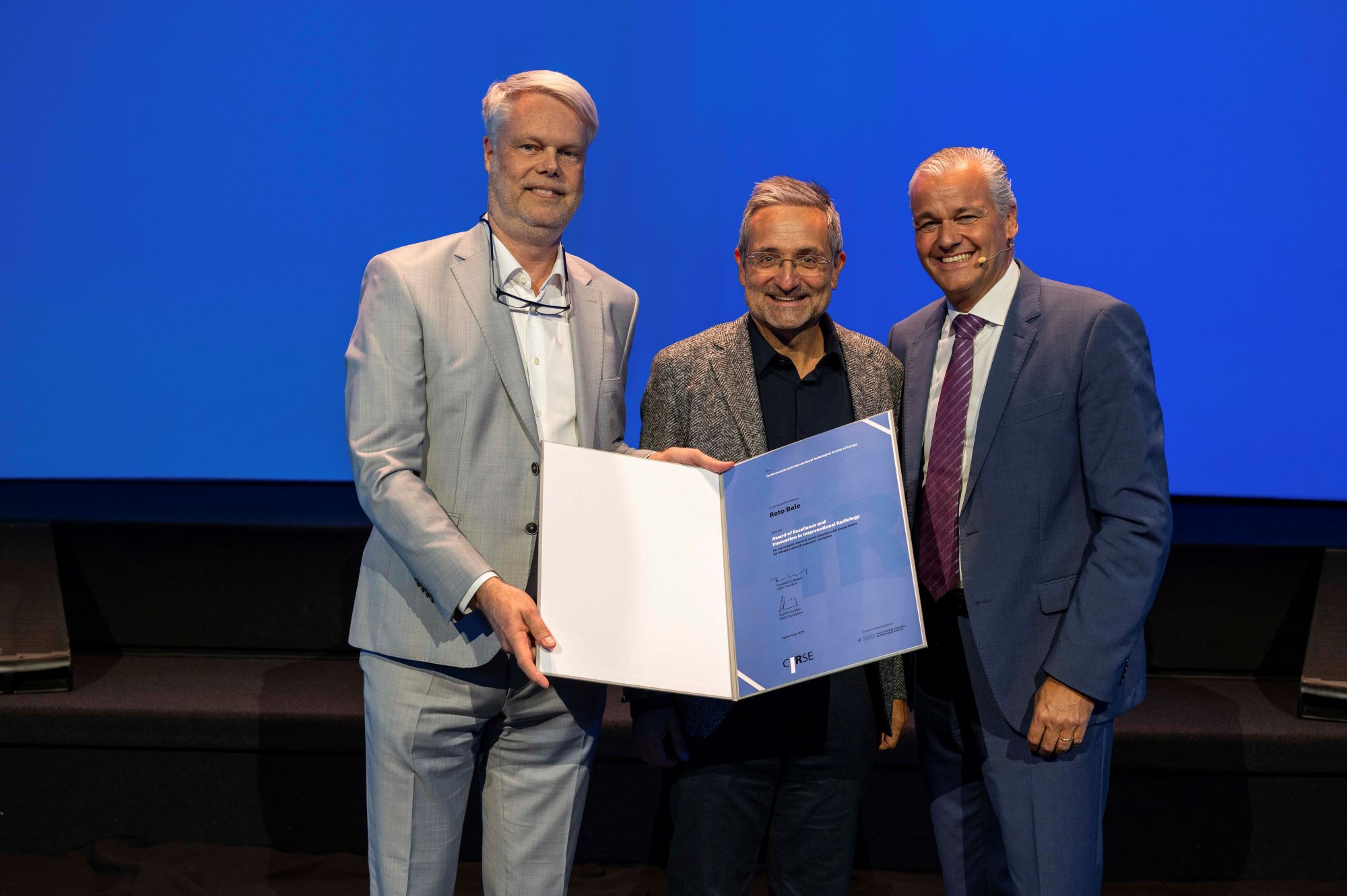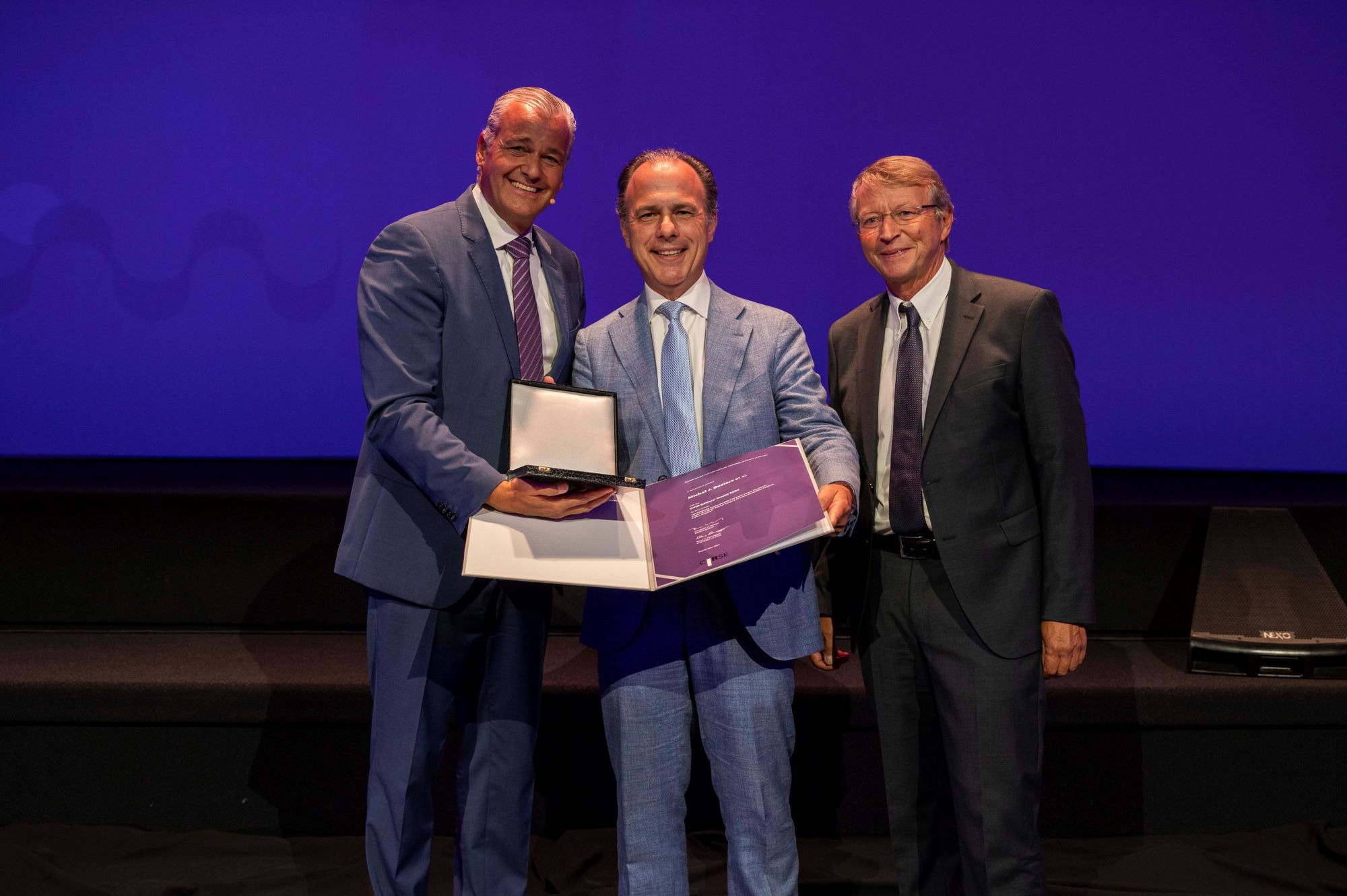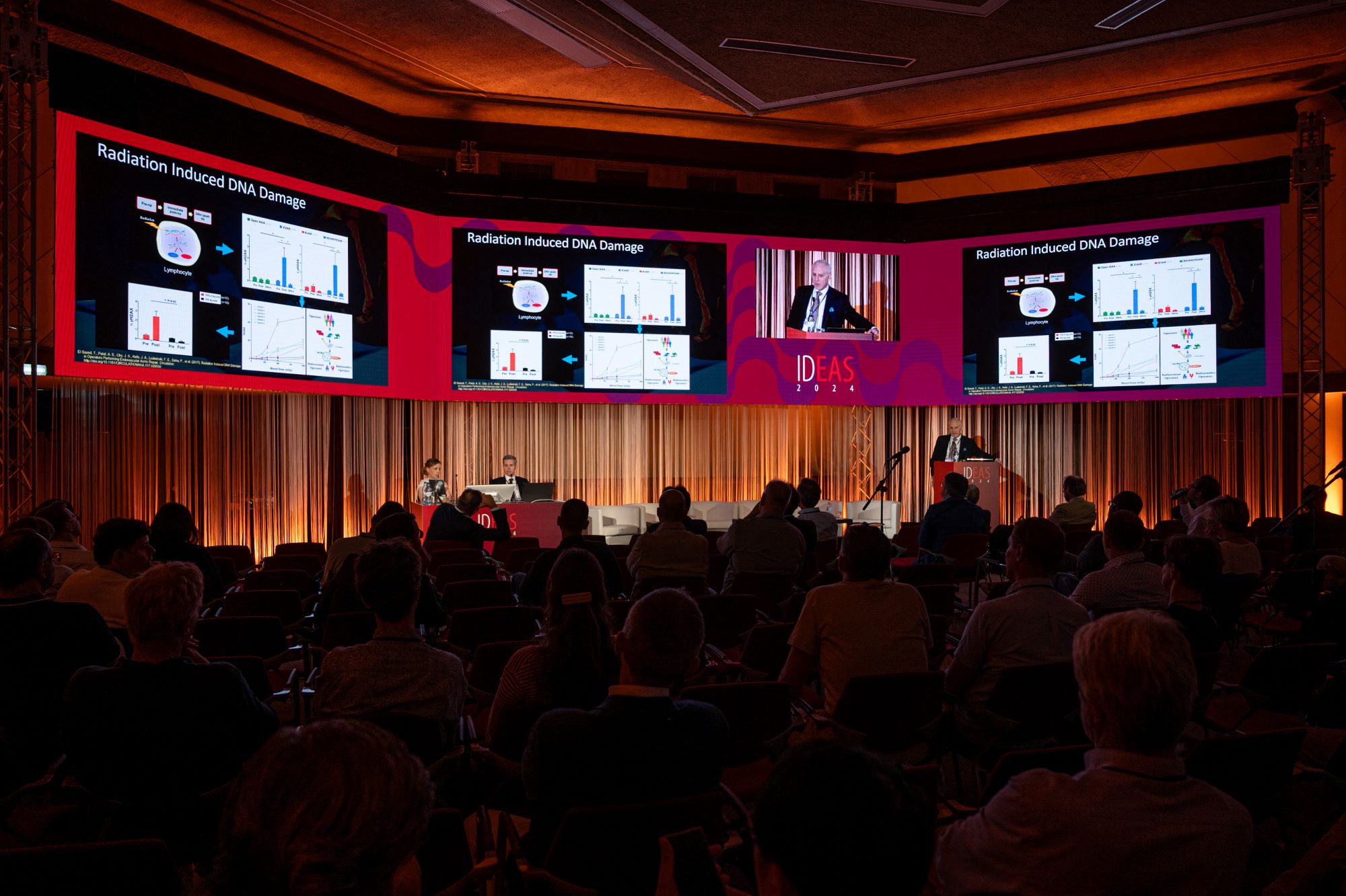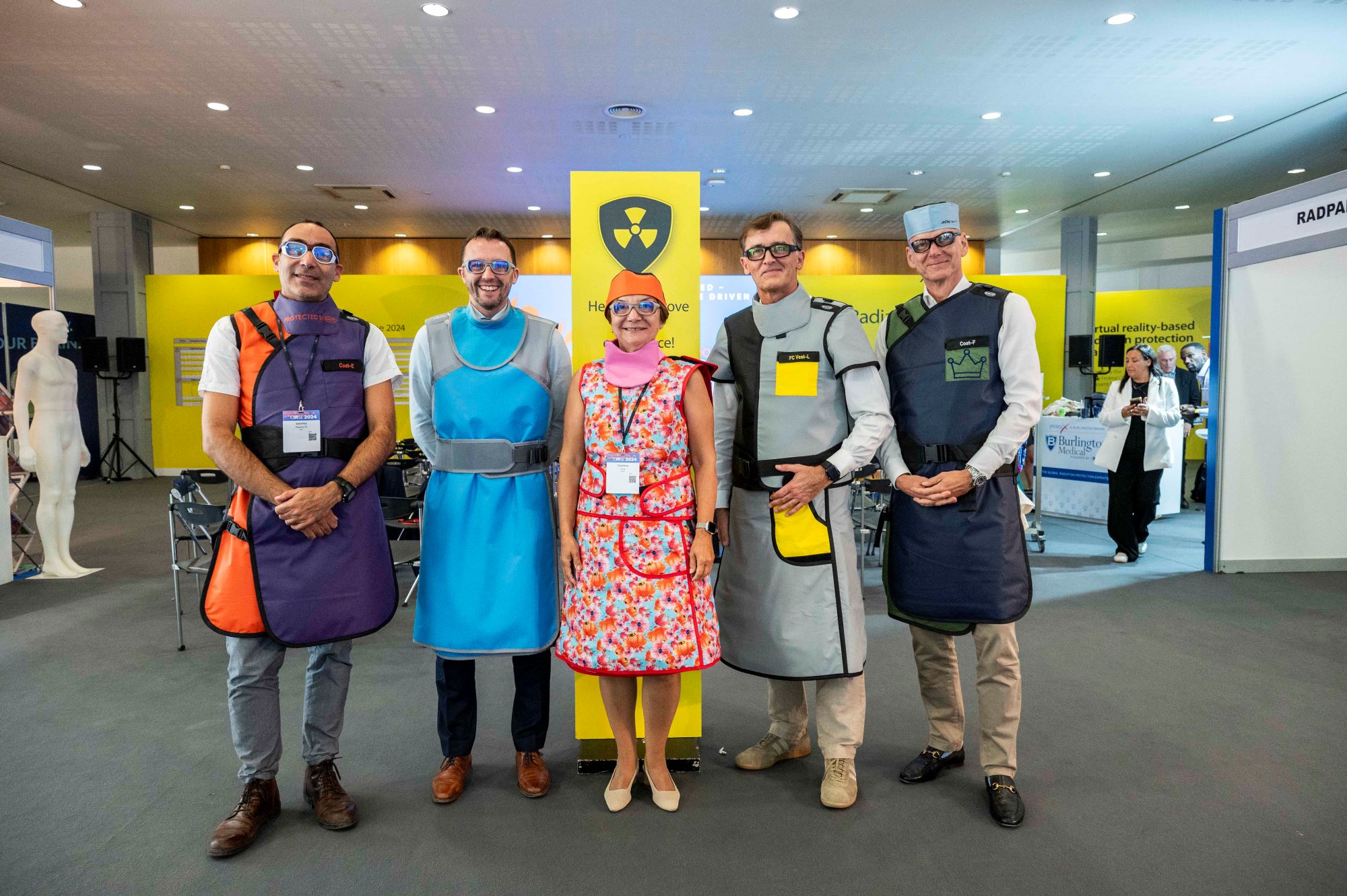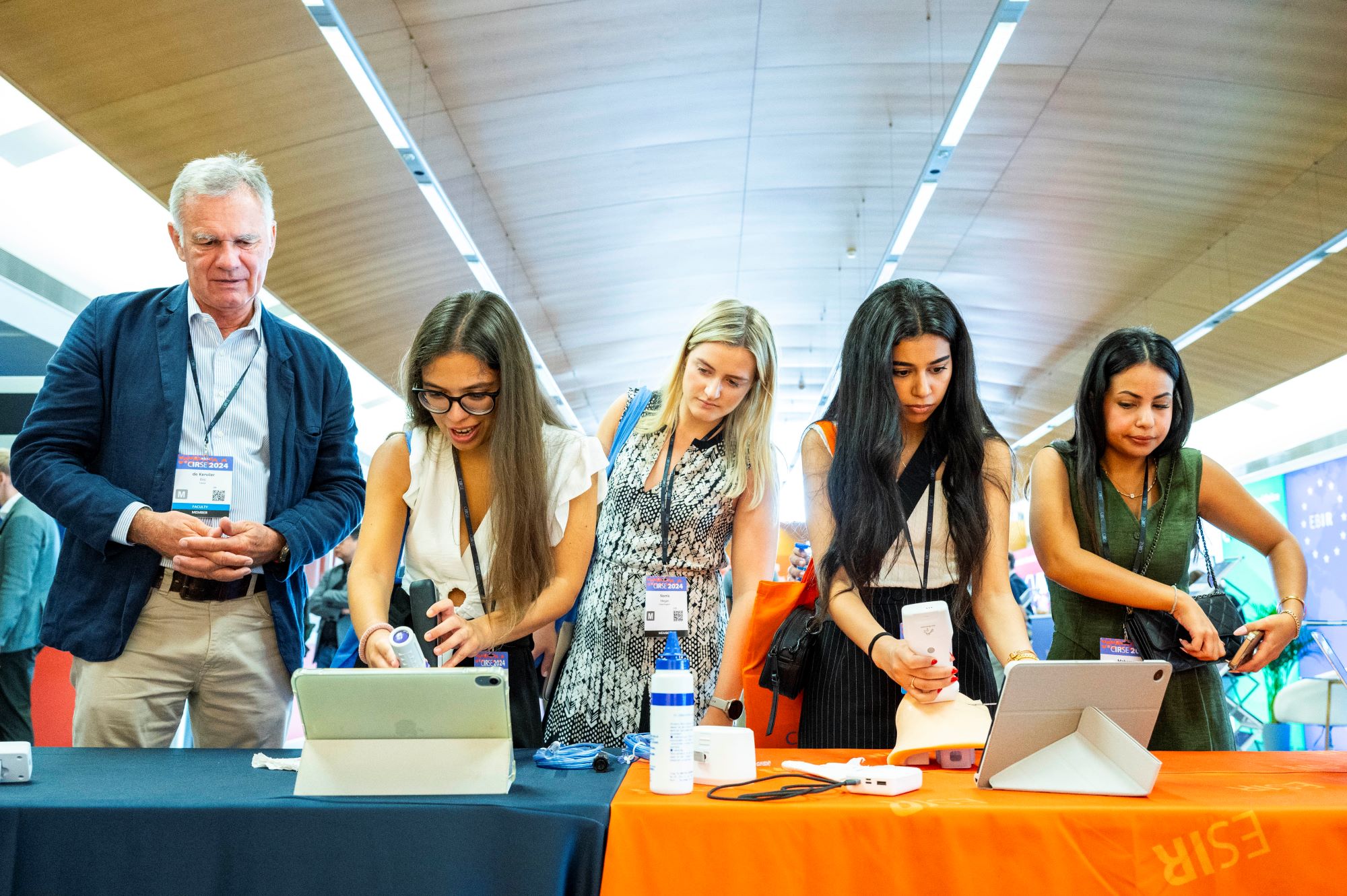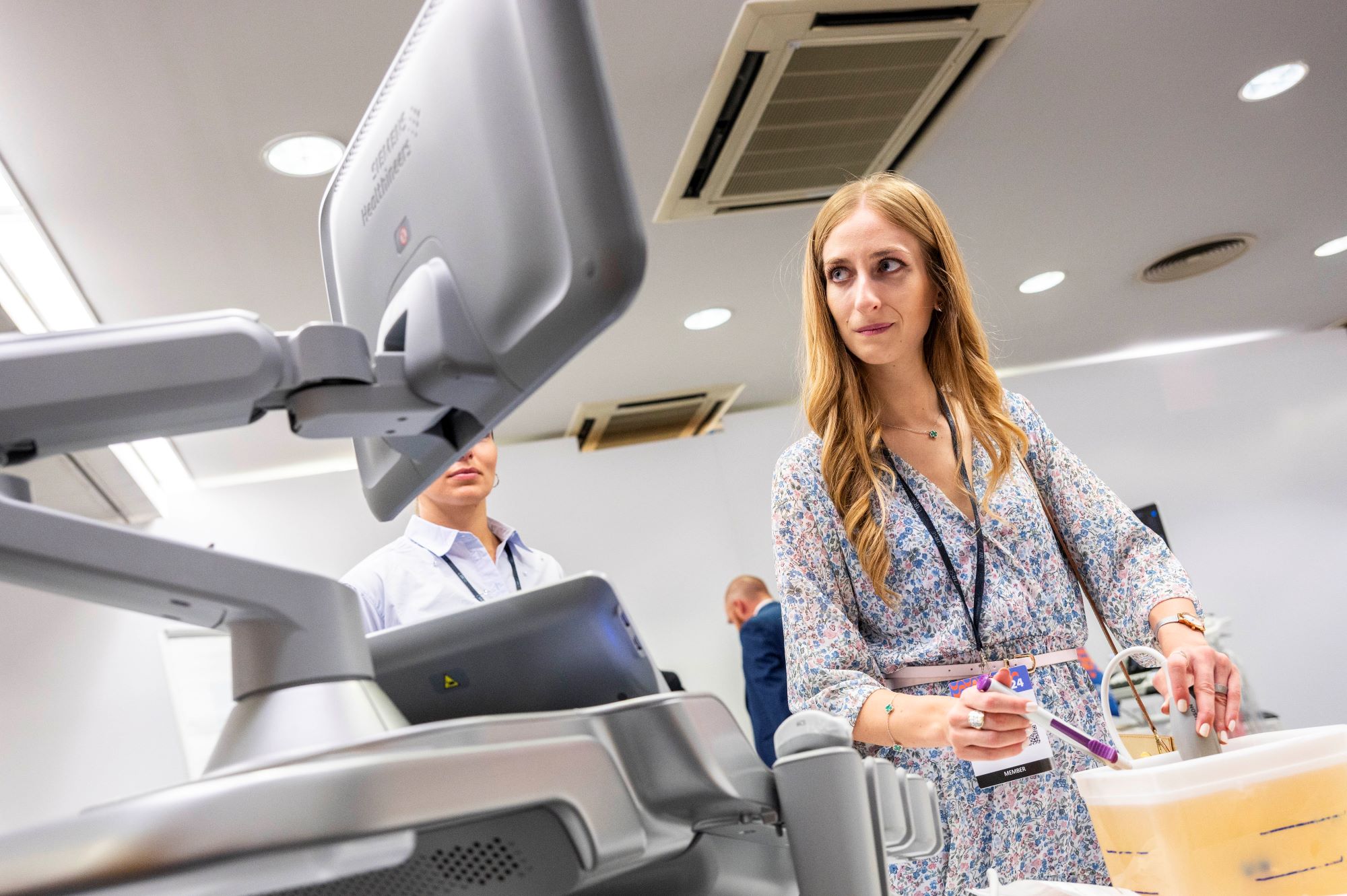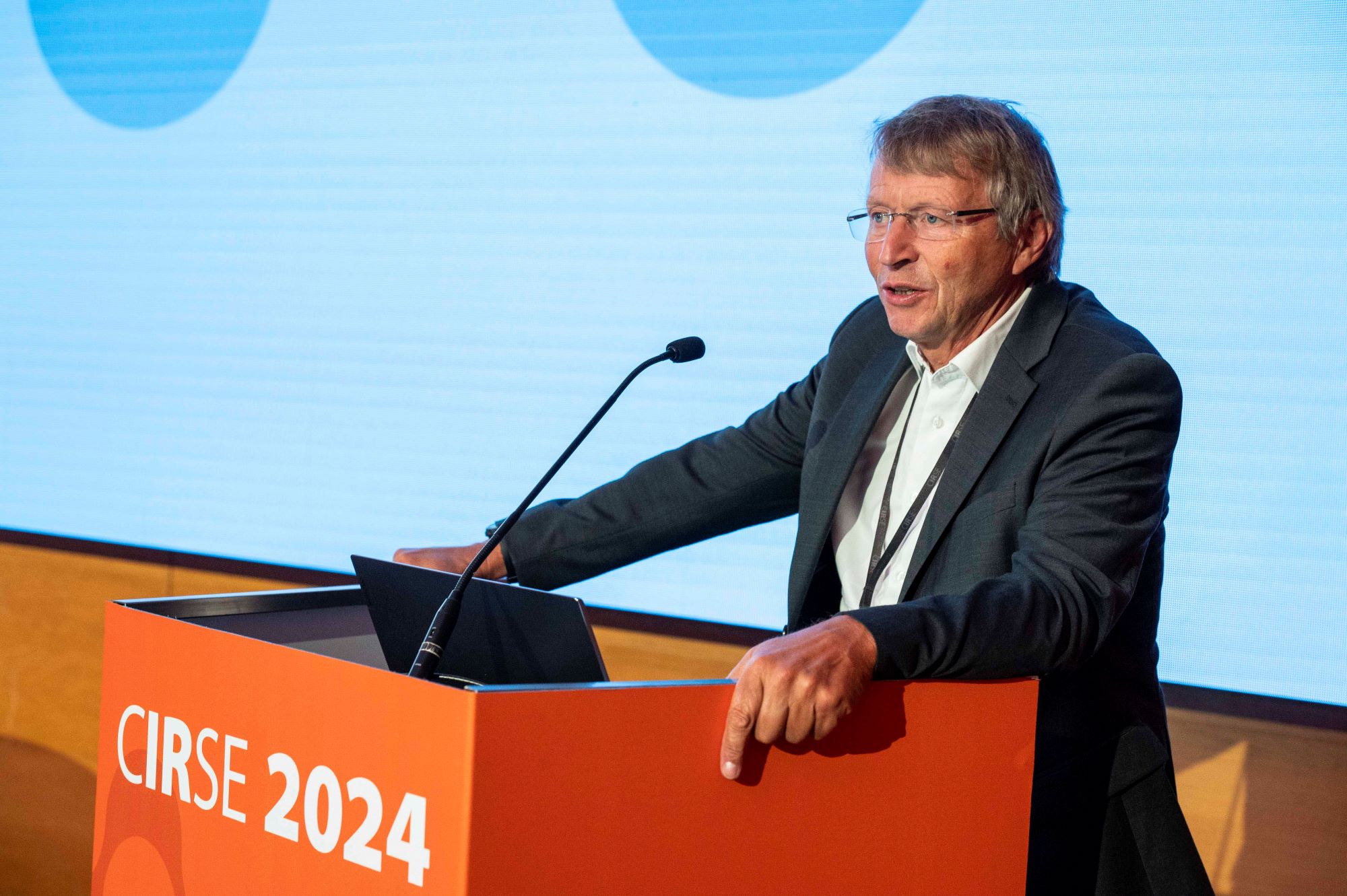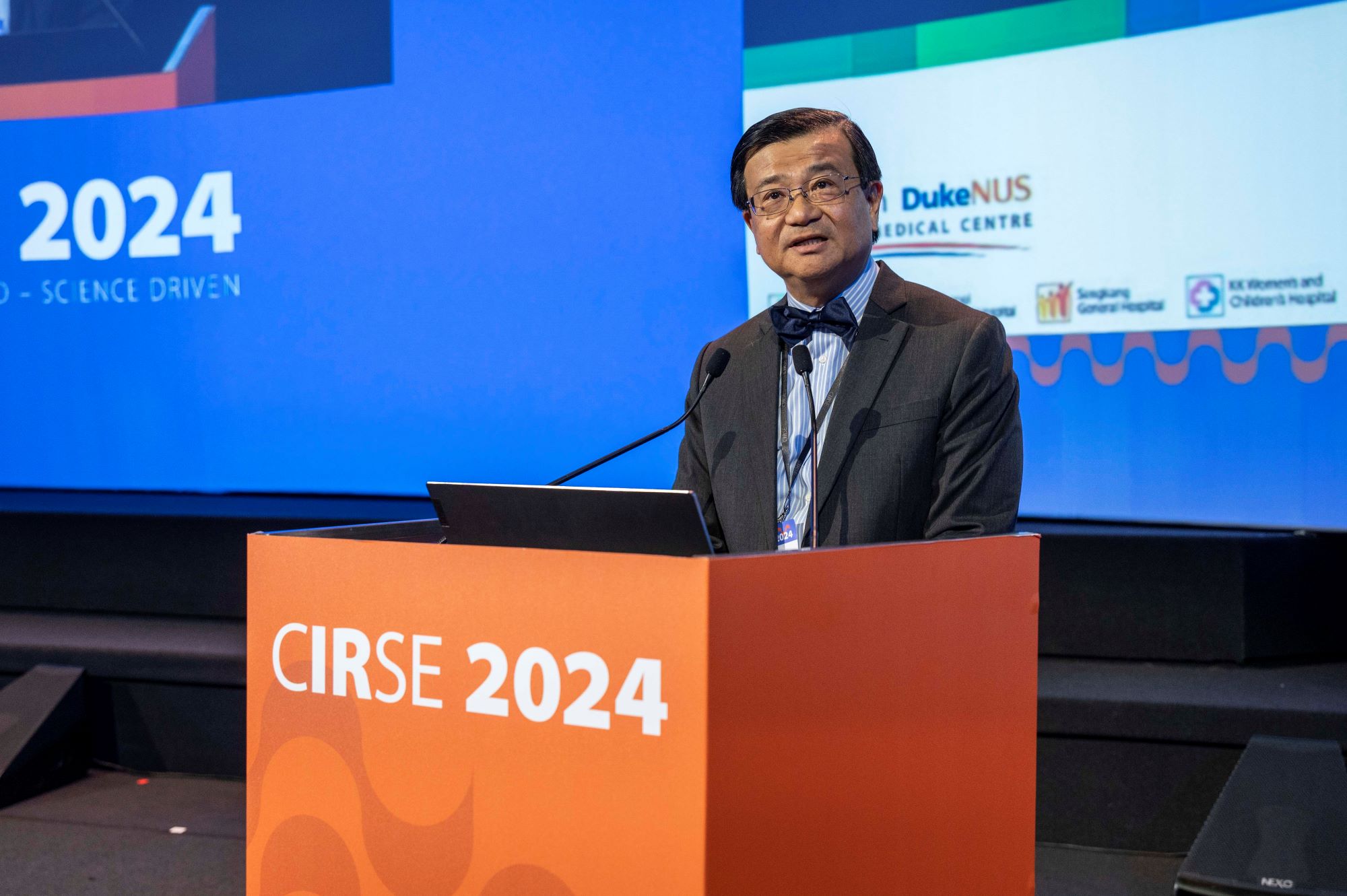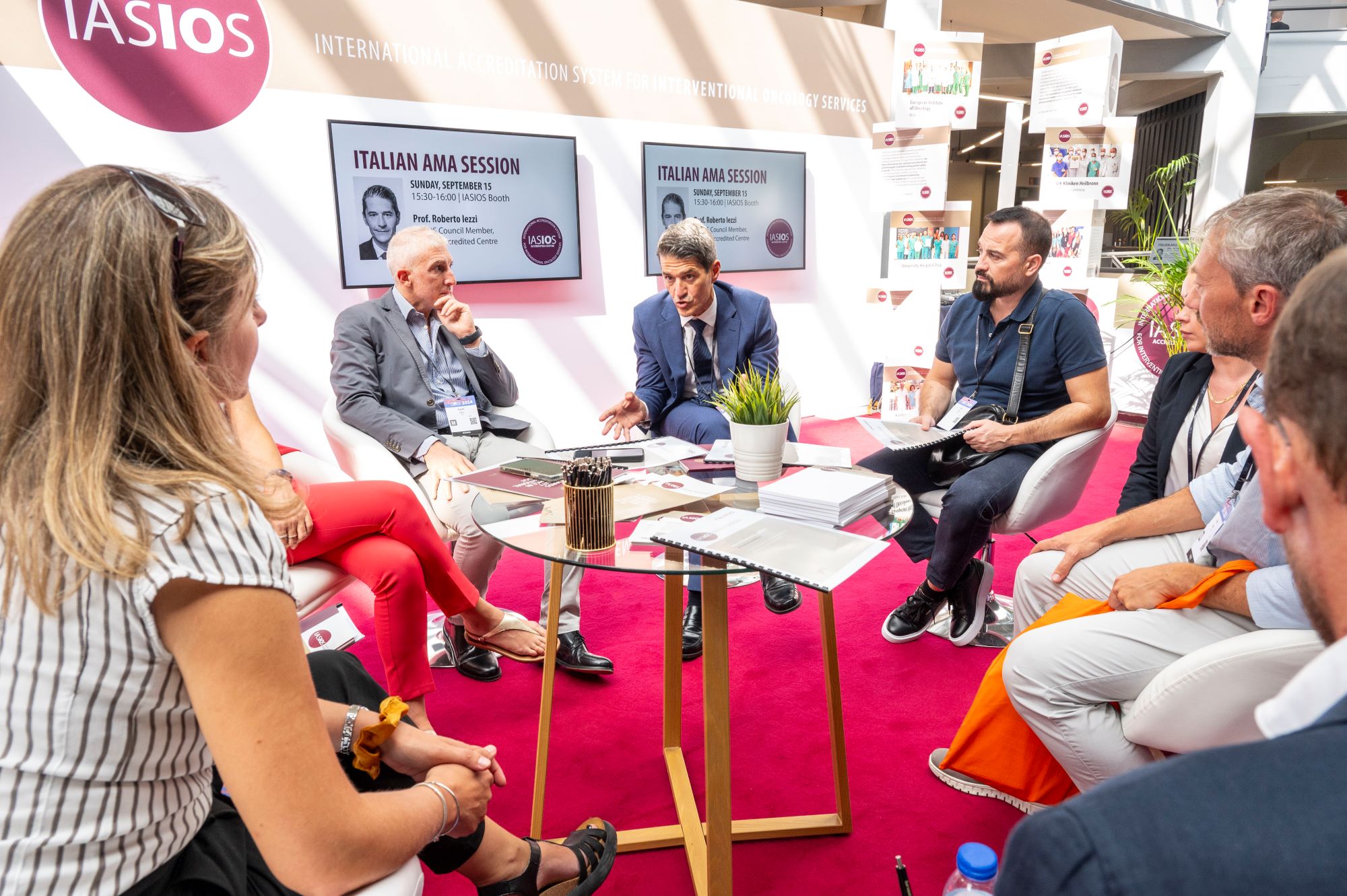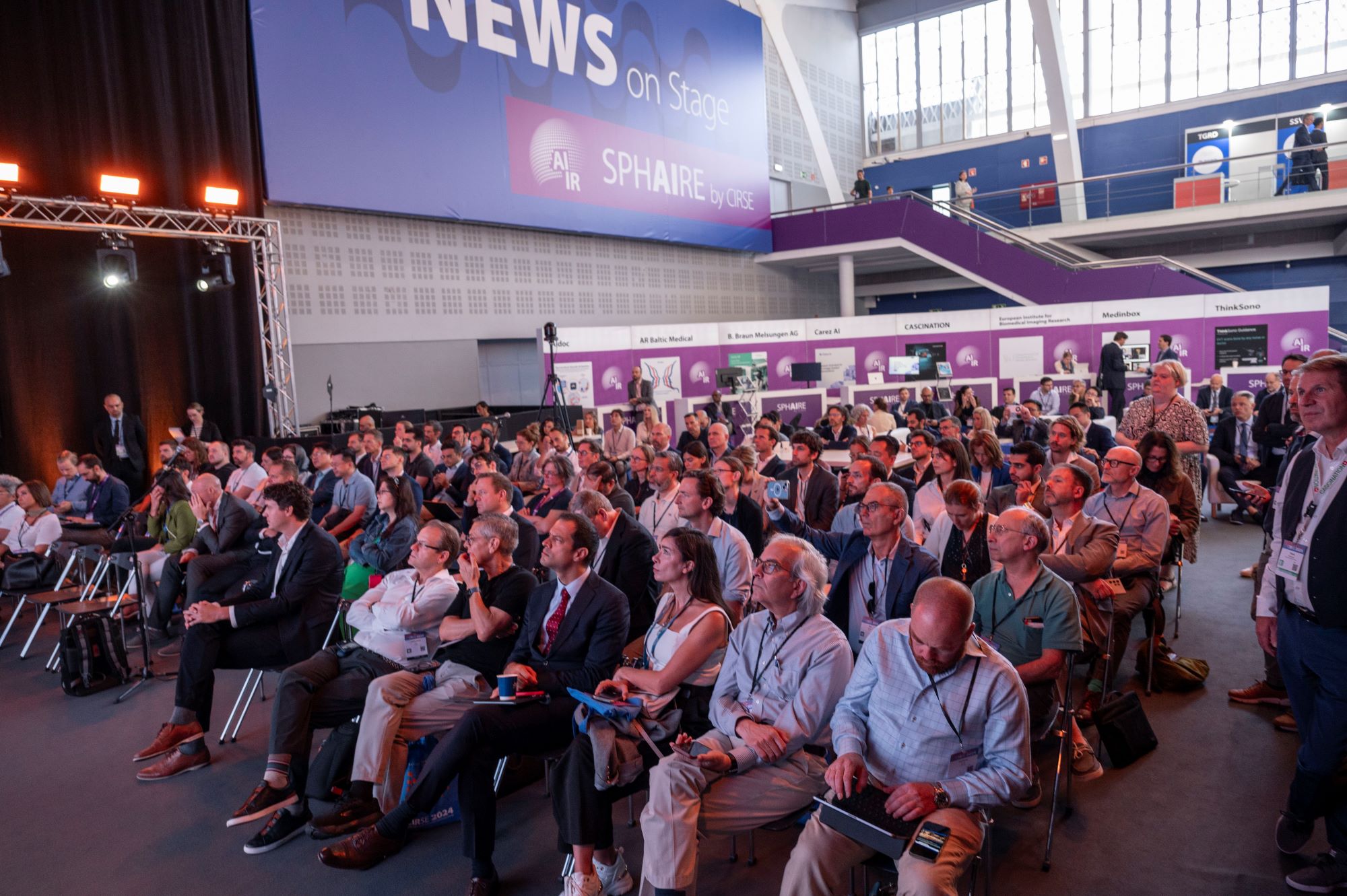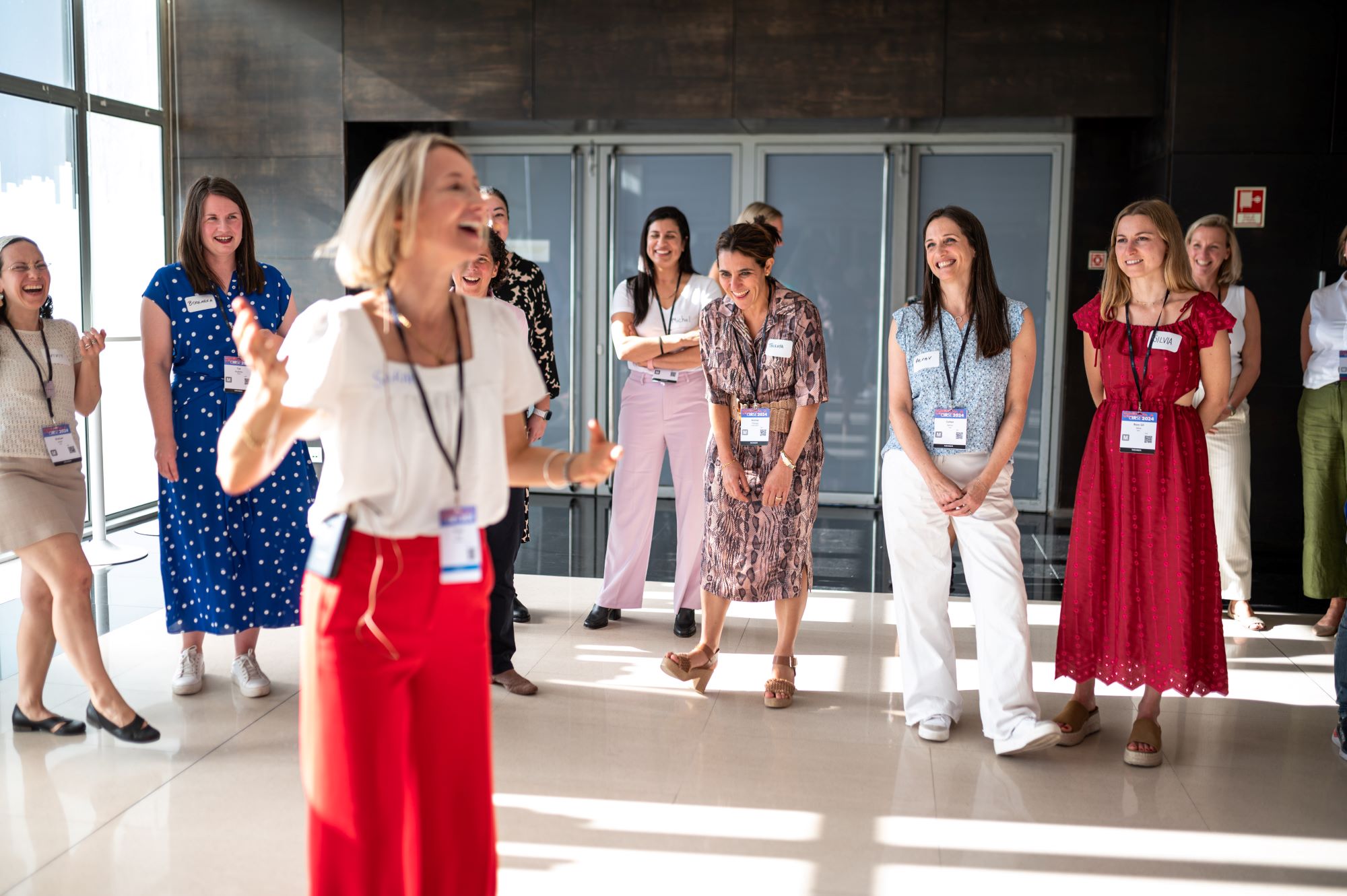Onsite at CIRSE 2024
While online participants had access to most lectures, the myriads of activities onsite added additional educational opportunities and an exciting component to the live event in Lisbon.
Many of CIRSE’s initiatives were represented with a booth and held interactive events throughout the programme. A very entertaining general knowledge quiz on CIRSE’s initiatives held on the first evening of the congress, hosted by Online Education Committee Chairperson Dimitrios Filippiadis, offered prizes such as a 2025 All Access Pass, free congress registration, and CIRSE 2024 farewell party tickets.
Other quizzes and receptions happened throughout the congress, from the CVIR challenge to IASIOS and CIRSE Academy quizzes, a CIRSE journals awards ceremony, and an IASIOS reception. The EBIR team was also onsite with copies of all CIRSE curricula and hosted multilingual Q&A sessions with successful EBIR candidates where attendees could ask their questions about how to prepare for the exam.
Women in IR were in the spotlight this year, with a session, a reception, and – for the first time – a dedicated workshop. Stay tuned for more on women in IR in an upcoming CIRSE Insider article!
The ESIR team held several ablation workshops, two on breast and thyroid ablation, and two focusing on thyroid tumour ablation.
The European Trainee Forum’s programme provided a recommended pathway through the congress for IRs at the start of their careers as well as many networking opportunities and short talks. A record number of trainees took part in the IR trainee support programme this year, which lets trainees who submit an abstract as a first or presenting author attend the congress free of charge.
The Student Programme – be inspIRed – attracted a record number of participants this year, with more than 300 medical students in attendance promising an ever-brighter future for IR.

